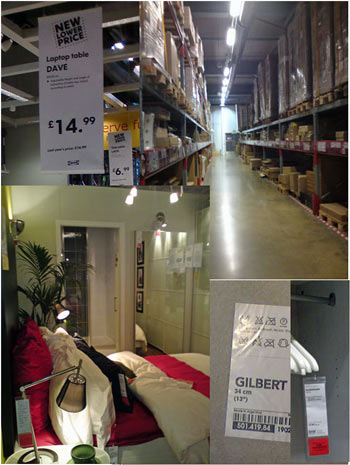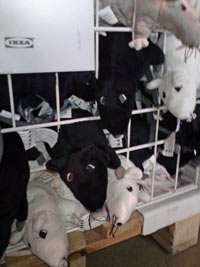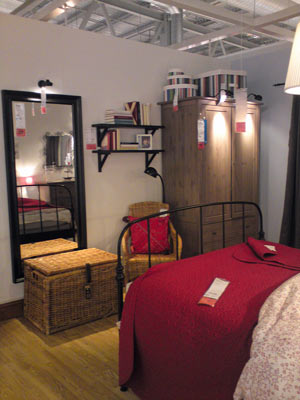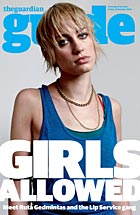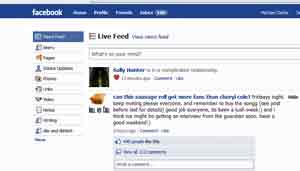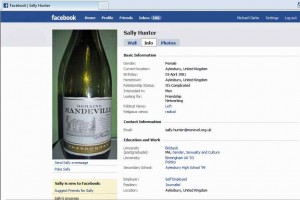I watched an edition of Horizon on BBC2 a few weeks ago which attempted to discuss the utterly bizarre nature of what we perceive as reality once it’s considered by physicists — quantum, astro- and various other varieties. (It’s available to view again on iPlayer until 15th March.)
Many people are familiar with the ‘unreal’ concept that, under quantum theory, a particle can be in two places at once and can cease to exist and then re-appear and all kinds of weird behaviour that seems to be the exact opposite of what people like me, with an ‘O’ level in it, understand about physics.
I was reminded of this programme when I saw this page of writing ‘top-tips’ retweeted by Emma Darwin (whose ‘Itch of Writing’ blog is linked to on the sidebar). It’s by Irish author Joseph O’Connor and seems to be aimed at an Irish audience (but, of course, many of the finest writers of English come from that country) and is on Blake Friedmann’s website (the Blake being well-known Twitterer Carole Blake).
The tips are all very sensible. I thought the last one — about knowing who you’re writing for — was very useful for new writers as the ‘democracy of the creative writing workshop’ (or some may say tyranny) sometimes gives the impression that it’s possible for a writer to connect with every reader — or at least the dozen or so strong opinions who tend to be on these courses. People have different tastes and if a writer removes everything that doesn’t get a positive reaction from every person in a workshop then he or she is likely to produce something so bland that no-one will love it. Workshops are great for getting feedback on technical writing issues from most participants but it’s not likely that more than a handful of participants will really get excited by each writers’ work — no matter how outstanding the quality. So O’Connor is right to advise people to write for a specific reader or small number of readers.
The point that most resonated with me, however, is the start of tip number five — ‘Make Something Happen’. If his first two sentences are concatenated as ‘Stories are…records of the exceptional’ then it perfectly sums up a point that I think is lost in the workshopping culture. It also reminds me, returning to the Horizon programme about the bizarre but apparently perfectly plausible, infinite universes theory.
This suggests that, despite its unimaginable vastness, our universe is only one of a massive number (infinite in theory) of co-existing universes where, because of their infinite number any variant of any event that we might think of has actually occurred in some parallel universe.
It sounds odd but an example from my novel might illustrate it: take as a starting point the one day James gets fired. Every event subsequent to his firing over which he makes a decision or is affected by the actions of other people or things may ‘split off’ into its own parallel universe. So in one universe he might get the train home immediately, in another he might head to the pub with his mates and in another he might decide to go and buy the painting from the artist he met the night before. The first two scenarios are much more likely but if I wrote about events in the parallel universe where that version of James now exists then it would be less interesting than following the universe in which James strikes up with Kim.
The same goes for all plot events — there are often many choices a novelist and his or her characters make but, in general, the most interesting stories are those which follow the parallel universes of the unusual choices — or in Joseph O’Connor’s words ‘records of the exceptional’.
Of course there needs to be a degree of plausibility and too many random events will make a reader feel cheated but the main source of credibility should be whether the character would behave in the way that the novelist chooses. For important drivers of the plot, it’s almost required that the character chooses an option that, while still credible, is less likely than the choice he or she would normally make. The day that’s really interesting is when your main character’s boss decides to fire him rather than all the days he doesn’t.
It’s the debates over plot and character that seem to be most problematic about writing workshops. Most people will come with an idea of the stories they want their novels to tell. These ideas may range between teens having their souls taken over by ancient evil spirits or they may be about unrequited love where most of the action occurs in a character’s imagination. Some are fantasy or magic realism, some are comic, some are totally realistic — but they are all stories to be told that require a suspension of disbelief from the reader, albeit at different levels. Central to this bargain of the suspension of disbelief is the concept of storytelling — i.e. reading is not a co-operative, interactive experience. The danger of workshopping is that the readers approach each others’ writing from a completely artificial perspective — that the story can be changed to match their personal preferences — ‘I think the character would appear nicer if he didn’t leave his wife’.
As with the point above about writing for a select group of readers, the novel has to be about what the author cares passionately enough to devote the massive amount of time required. While films now have endings changed by the initial reactions of advance screening, not even Hollywood seems to create its films solely by focus group.


